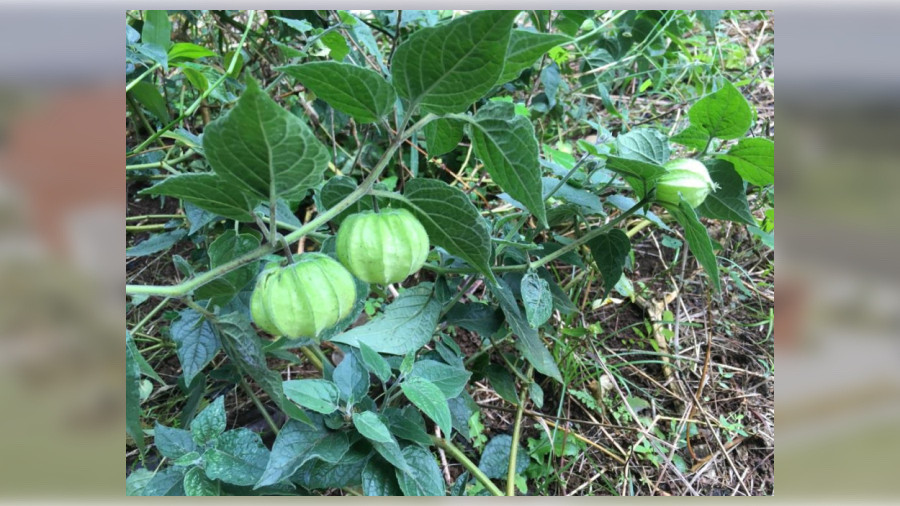Students research antibacterial activity of poha berry extract using nanotechnology
April 20, 2023

Nanoparticles carrying antibacterial plant extracts are being studied as a tool to combat antimicrobial resistance. DKICP student pharmacists Alyssa Kam, Yang Xu and Chae Min Lee have been working under the supervision of Professors Leng Chee Chang and Supakit Wongwiwatthananukit to synthesize silver nanoparticles using extract from Physalis peruviana, known locally as poha berry, and evaluate its antibacterial activity.
“Our research focuses on safely, efficiently and economically translating new therapeutic agents from natural products,” explains Wongwiwatthananukit. “Application of nanotechnology in pharmacy (nanopharmacy) enhances the bench-to-bedside approach to patient care. Specifically, green synthesis of metal nanoparticles using plant extracts ensures clean, non-toxic and eco-friendly production. Poha berry has been widely used in traditional medicine since pre-Columbian times, particularly to treat cancer. The fruit is popular in Hawaiʻi and is eaten fresh or used for making jam.”
Misuse and overprescribing of antibiotics are the main factors leading to antimicrobial resistance, explains Kam. “That’s why it’s important to identify alternative compounds with antimicrobial activity, especially plant-based compounds.”
Undetectable by the human eye, a nanoparticle is a particle of matter between 1 and 100 nanometers in diameter. Silver is widely used for nanoparticles as an innovative method of drug delivery.
“Our research results showed the synthesized silver nanoparticles using the Physalis peruviana extract demonstrated good antibacterial activity against Gram-negative E. coli and one of the Gram-positive Methicillin-sensitive S. aureus bacteria strains that we tested, both which exist here in Hawaiʻi,” says Chang. “The next step is to determine the optimal and functional nanoparticle sizes that also have good stability properties.”
Nanoparticles research is a growing segment within the field of nanomedicine, and is very relevant to pharmacy curricula, adds Chang. “There are more than 50 nanomedicines approved by the U.S. Food and Drug Administration. Offering a Doctor of Pharmacy curriculum based on emerging pharmaceutical and clinical science applications is significant. It is important to give our students this opportunity to learn about nanoparticles and nanomedicine through research electives, including the course Special Topics in Pharmaceutical Sciences Research/Lab.”
The three second-year students will be presenting the results of their research at the John A. Burns School of Medicine Biomedical Sciences and Health Disparities Symposium held April 21 at the University of Hawaiʻi Cancer Center on Oʻahu. Their work has been accepted for a poster presentation at the annual research symposium, which includes academic and student researchers from around the state.
See more news from 2023.

